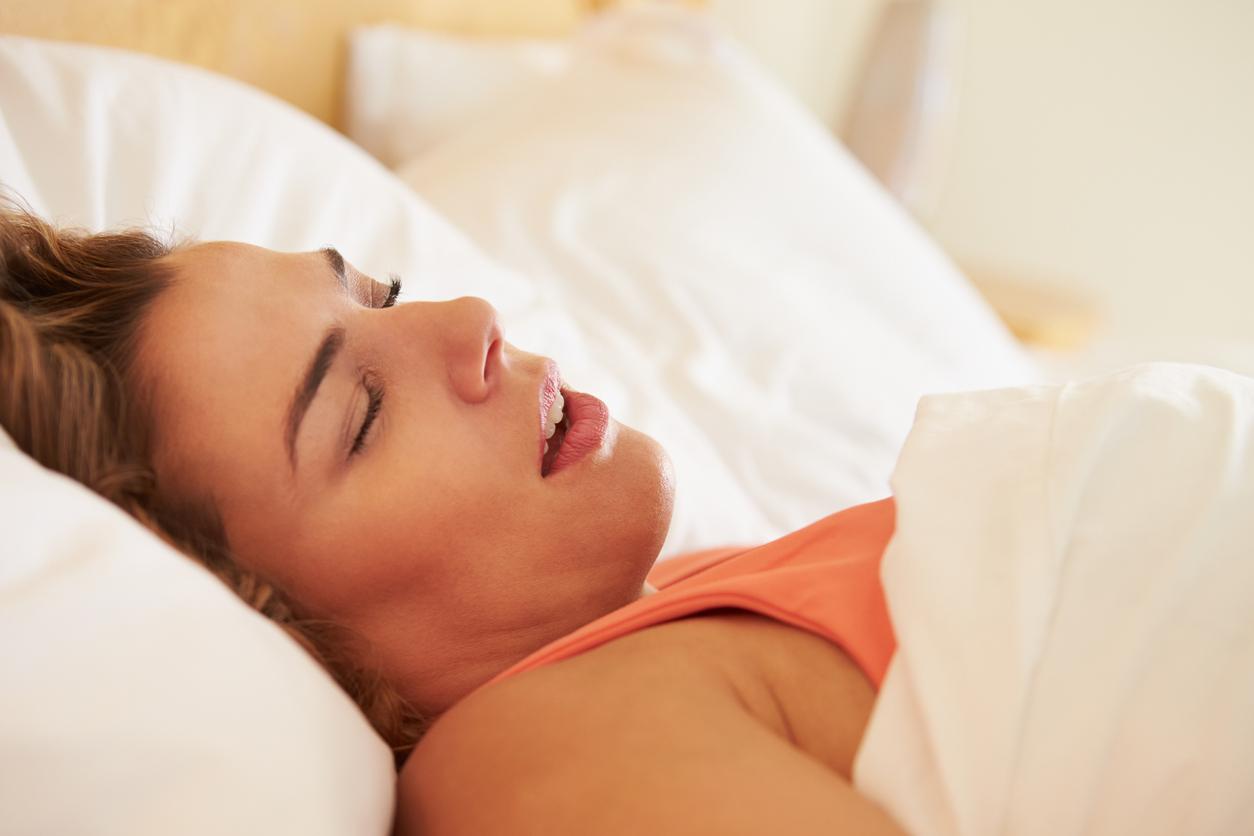When you sleep, your mouth can open for several reasons, and this can impact your health.

- Mouth breathing during sleep can have adverse health consequences.
- This problem can be caused by many factors.
- Depending on the cause, different treatments can solve this problem.
When we sleep, it is common for our mouth to open naturally. This is due to the gradual relaxation of the facial muscles. According to Dr. Christine DeMason, assistant professor of otolaryngology at the University of North Carolina School of Medicine, interviewed by the Huffpost, Mouth breathing occurs more easily during deep sleep stages, where there is less control of the upper airway muscles.
The different causes of mouth breathing
Mouth breathing can have several causes such as allergies, colds, certain medications, deviated nasal septum, nasal polyps, enlarged tonsils, snoring, sleep apnea, back sleeping position or even smoking. These factors cause obstruction of the nasal passages and lead to mouth breathing during sleep.
The consequences on health
Breathing through your mouth while sleeping can have negative consequences on our health. At the oral level, one of the most common problems is dry mouth, which occurs when we breathe through our mouth for prolonged periods. Dry mouth encourages the growth of bacteria, which can lead to persistent bad breath. Additionally, this condition can also increase the risk of developing tooth decay and gum disease as well as oral inflammation and infections. Indeed, saliva plays a crucial role in protecting our teeth and gums. When we breathe through our mouth, saliva production decreases, which weakens our natural defenses.
Mouth breathing can also affect the cardiovascular system (cardiovascular disease, high blood pressure, stroke). In addition, it is often linked to respiratory disorders such as snoring or sleep apnea, disrupting sleep and affecting quality of life.
Methods to prevent mouth breathing during sleep
There are different methods to prevent mouth breathing during sleep and thus reduce potential complications. We must first identify the underlying causes of this habit to offer solutions, such as nasal clearance or myofunctional therapy to strengthen the facial muscles and restore optimal nasal breathing. Additionally, certain sleeping position adjustments, such as sleeping on your side, can also help keep your mouth closed during the night. In some cases, specially designed oral appliances or CPAP (Continuous Positive Airways Pressure) machines may be needed to make breathing easier during sleep. Finally, in more serious situations resistant to conservative treatment, surgery can be considered to correct anatomical problems.
In the event of difficulty breathing during sleep, it is recommended to consult a specialist in order to obtain a diagnosis and consider appropriate treatment.


















